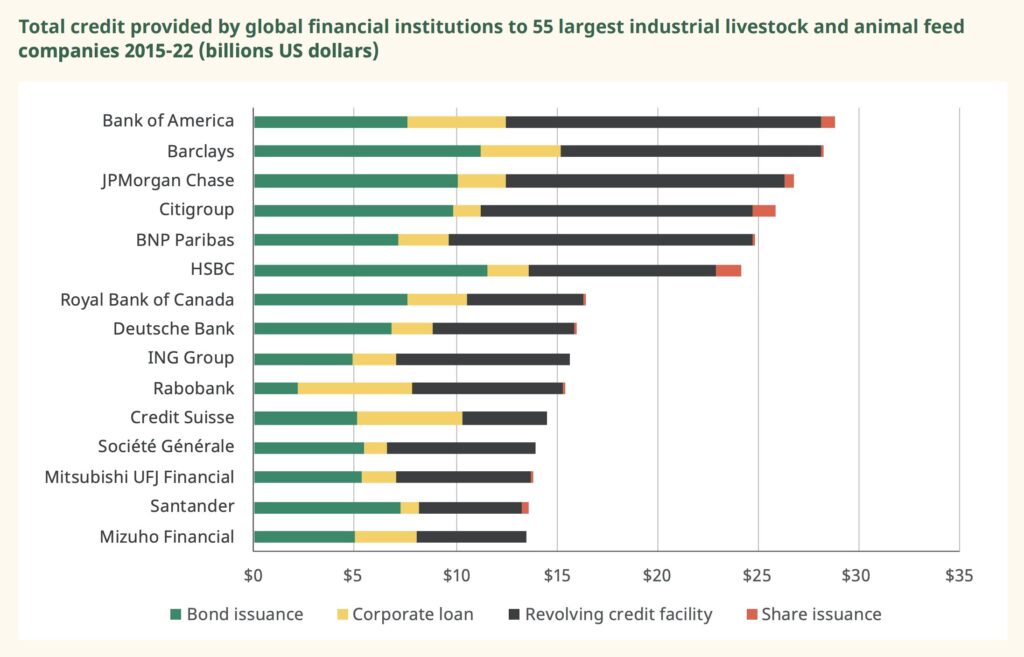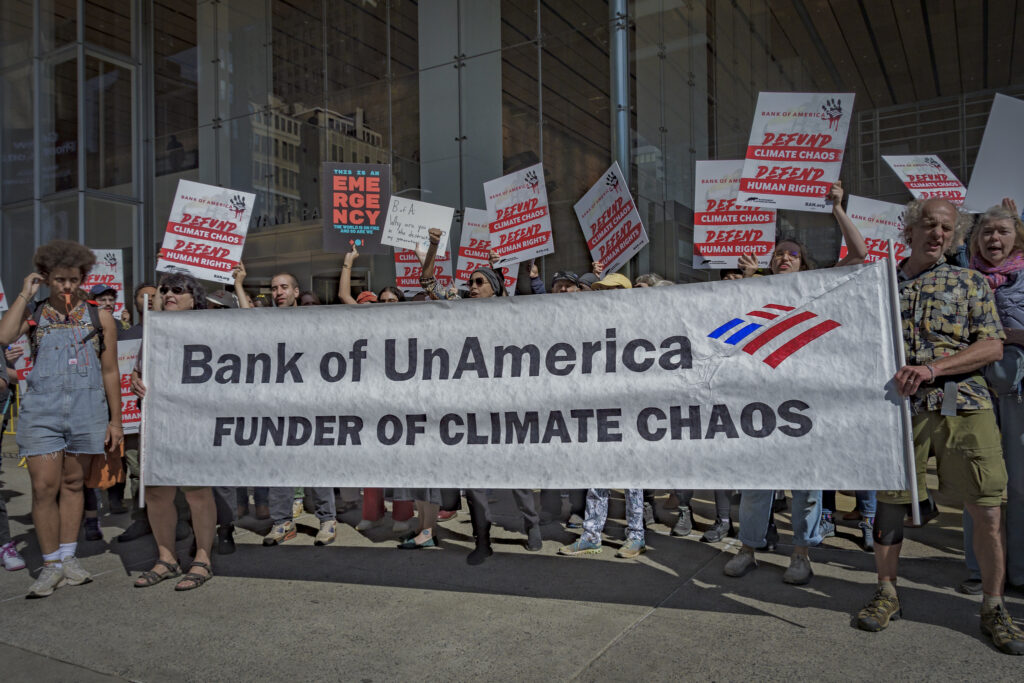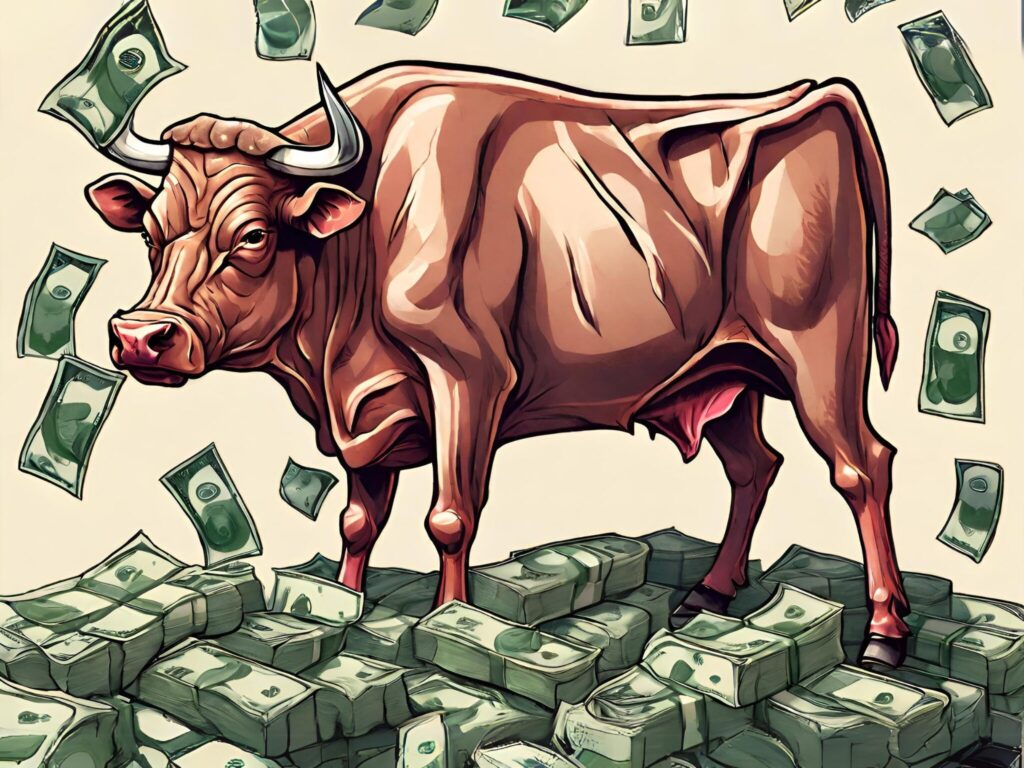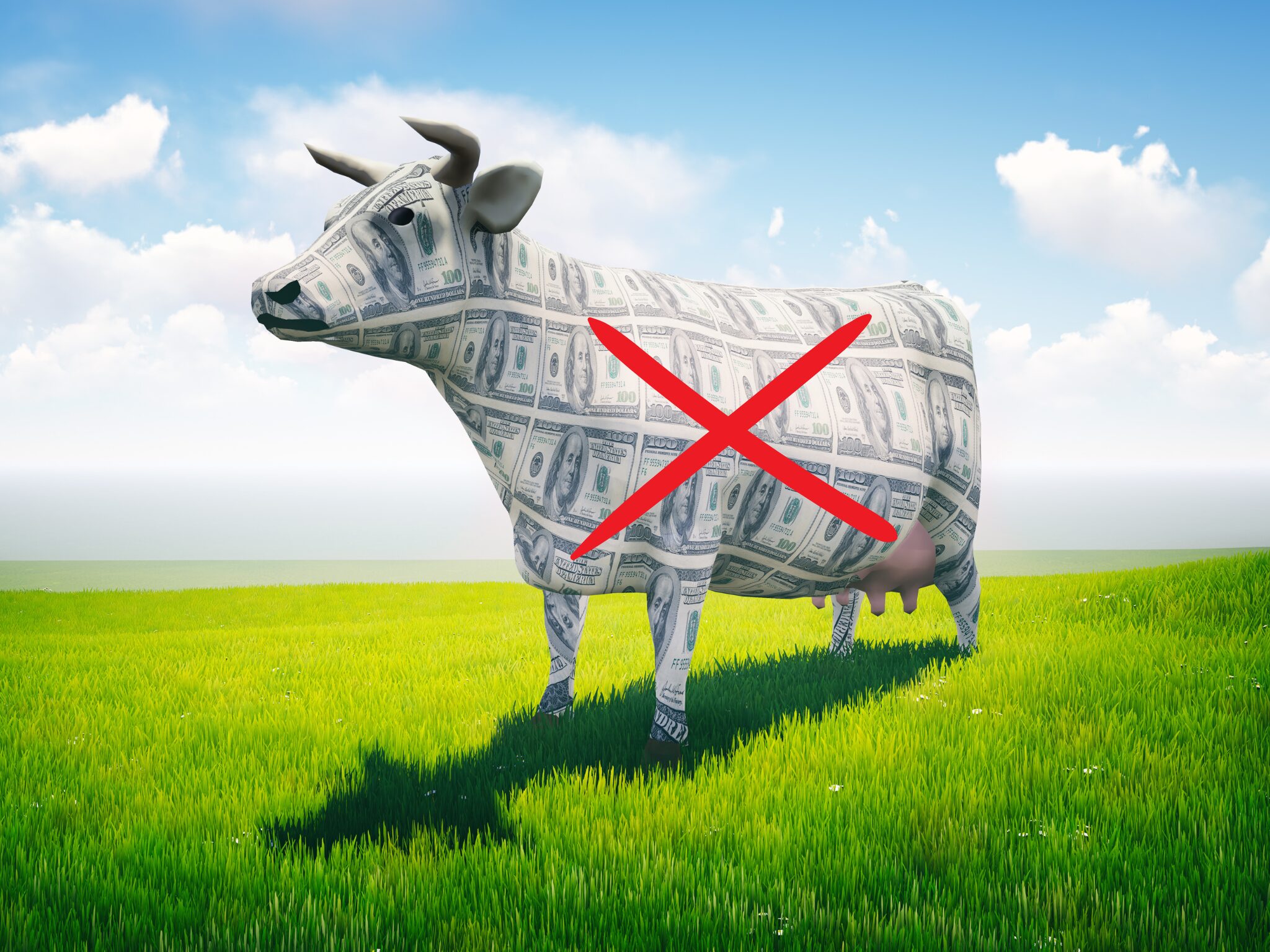In An Open Letter, 100+ Organisations Ask Banks to Stop Funding the Livestock Sector
5 Mins Read
Activism groups are calling for a withdrawal of financial support for the livestock sector from banks including the Big Three, in light of the industry’s contribution to climate change.
Banks must stop financing meat and dairy producers to fight the climate crisis, halt biodiversity loss, and protect animal rights, says a new letter directed at the world’s biggest financial institutions.
Penned by 105 environmental and animal advocacy NGOs – including Friends of the Earth, Changing Markets Foundation, ProVeg International, Feedback Global, and Greenpeace – the open letter highlights the banking sector’s outsized support for planet-harming animal agriculture.
Take the US, for instance. Between 2016 and 2023, 58 of its banks provided $134B in financing to meat, dairy and animal feed corporations, with the Big Three – Bank of America, Citigroup and JPMorgan Chase – responsible for 55% of the sum.
These banks have aided livestock giants like Nestlé, JBS ADM, Bunge and Cargill. These producers are among the leaders of an industry that accounts for as much as a fifth of all greenhouse gas emissions. Globally, the climate footprint of the top 56 livestock companies is higher than Japan.
Research has found that meat and dairy production accounts for 57% of the food system’s emissions, and the letter references a study that suggests global livestock production will use 80% of our carbon budget by 2050.
“The actual emissions are undoubtedly higher than their self-reported emissions because meat, dairy, and feed corporations’ emissions data is often underreported and Scope 3 impacts are largely undisclosed, even though they generally account for 90% or more of these companies’ emissions,” the organisations write.
“By financing the world’s largest meat, dairy, and feed corporations, global banks are prioritising corporate gain at the expense of people and the planet.”
Banks must halt new financing and set 1.5°C-aligned targets

Banks and financiers have provided $615B in credits to the 55 largest livestock producers since 2015, supporting companies that can slaughter 44 million chickens, nearly 200,000 cattle, and 639,000 pigs every day.
But with the demand for animal proteins set to grow by 20% by mid-century, the livestock industry’s environmental footprint is only set to expand. That is a major problem – the amount of land, water and resources it takes to grow meat is highly inefficient, and will exacerbate food security globally.
Switching to plant-based diets instead can cut emissions, water pollution and land use by 75% – but to enable such a change, money (both private and public) needs to go in the opposite direction it’s going now.
The letter calls on all banks to treat industrial livestock as a high-emission sector, and immediately publish and implement agriculture-sector-specific targets to comply with a 1.5°C future.
At the minimum, this should include “halting all new financing that enables the perpetuation or expansion” of factory farming, requiring livestock companies to “disclose third-party verified 1.5°C targets and action plans that align with the IPCC22 or an equivalent science-based sectoral pathway”, and “addressing the additional social and environmental harms from industrial livestock production”.

When it comes to the aforementioned 58 banks, up to 70% of their total meat- and dairy-related financed and facilitated emissions come from methane, a gas 28 times more potent than carbon dioxide over a 100-year period. Bank of America’s financing of JBS alone accounts for 87% of this figure.
Together with Citigroup and JPMorgan Chase, livestock corporations only represent 0.25% of their lending portfolios. But they result in 11% of the Big Three’s reported greenhouse gas emissions.
“By eliminating their financing of high-emitting corporations involved in meat, dairy, and feed production – a relatively small change in how they allocate their capital – these big banks can affect a sharp emissions reduction,” the letter states.
Banks have set climate goals, but their livestock contribution is growing

Ola Janus, banks and nature campaign lead at watchdog BankTrack, slammed industrial livestock production as a “wasteful and cruel” illusion. “In our reality of limited resources, it’s shocking that any respectable financial institution still views this outdated industry as a valuable investment rather than a liability,” she said.
The letter notes how banks are coming under increasing pressure from policymakers, shareholders, and civil society groups as “evidence of harm driven by companies and ignored by their financiers mounts”.
That has compelled banks to make climate commitments, including the Net-Zero Banking Alliance, in which 144 banks from 44 countries have pledged to set emission-cutting targets for agriculture by the end of this year.
But despite their commitments, banks’ involvement in livestock production is on the rise. “From 2019 to 2022, banks granted 15% more credit to the largest meat, dairy, and feed corporations than the previous four years,” the letter reads.
“Industrial livestock companies’ operations are structurally at odds with a sustainable future – they are hardwired to pursue growth in the unsustainable mass production of meat and dairy,” it continues. “Therefore, banks simply cannot achieve their climate commitments without a significant reduction in their financing to meat, dairy, and feed corporations.”
The letter comes months after the World Bank expressed support for alternative proteins, asking governments to redirect subsidies from livestock farming towards these low-emission foods – although its own private-sector arm has provided at least $1.6B to industrial livestock farming projects since 2017, and been subject to similar calls from activists.
“Halting bank financing of industrial livestock production would immediately and significantly improve banks’ emissions equation, demonstrate a commitment to addressing climate and nature-related impacts, and deliver benefits to the planet, people, and the banks,” says the letter.



